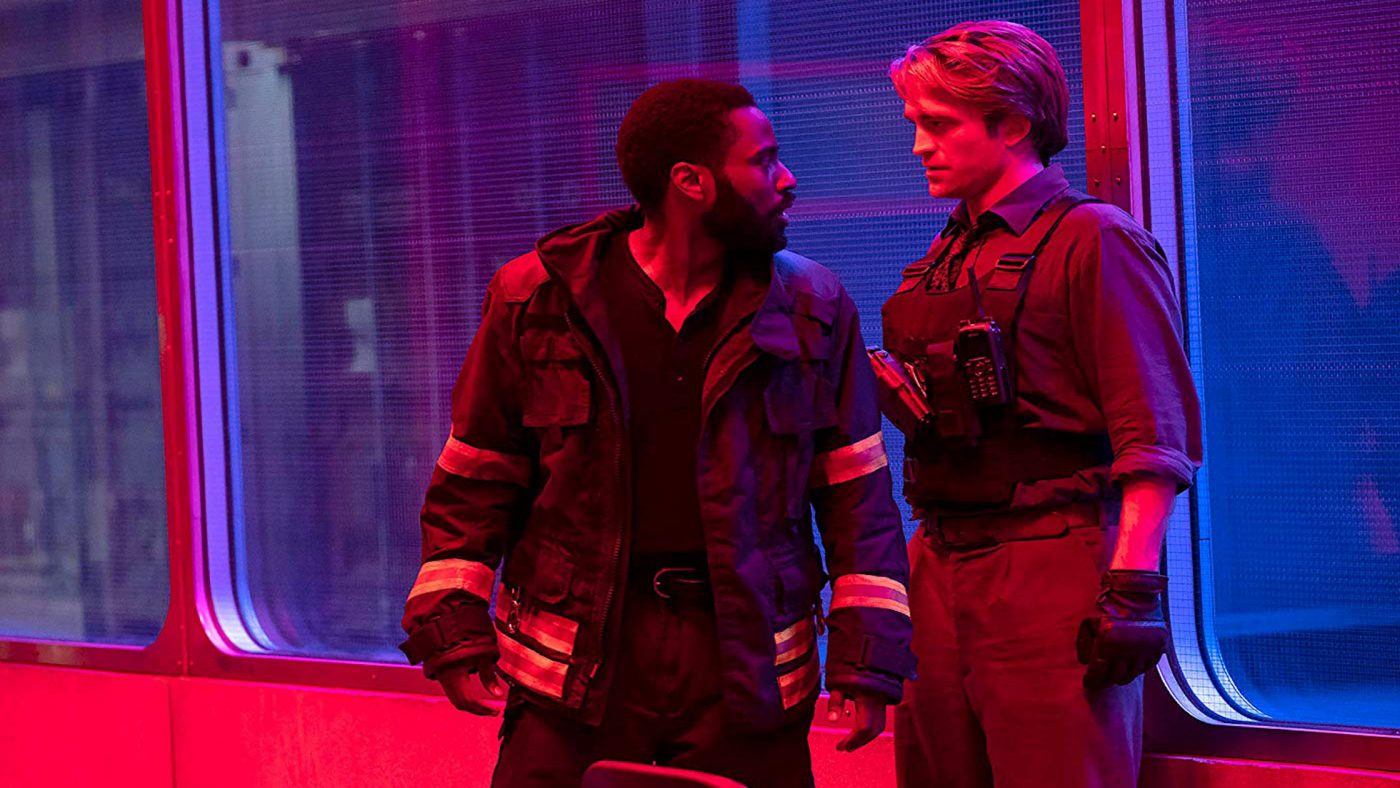Where to begin with a film as audacious as Tenet?
The beginning, middle and end all offer different perspectives as they whizz past. Bewilderment, present at each of those points, might be the best through-line upon which to cling.
As the time-twisting logic of Tenet reveals itself there is also amazement to be found. Amazement and admiration for a director confident enough to attempt to deliver such a daring project for a mainstream crowd fattened Hollywood’s classic narrative system. Nolan takes that same cause and effect template and folds it in on itself like a cinematic pretzel. This is Primer, Safety Not Guaranteed or Looper with a $200m+ budget. It might be all three of those films and none of them at the same time.
Time. Hundreds of films have attempted to play with the notion of time. The same amount again and more have played with narrative structure. Nolan himself made mischief with his sophomore effort Memento. Yet Tenet takes a similarly high concept and shoots it into orbit.

Attempting to explain the plot in detail would be like trying to explain an abstract painting. Appreciation, or distaste, will be entirely personal, even with a detailed recounting of the events. Or should that be ‘stneve’? Indeed, John David Washington playing The Protagonist, is early on in the film advised not to try and understand the inversion at the film’s core. He is instead told to trust his instinct. That feels like solid advice to everyone watching too. A smart redux of Basil Exposition’s tongue-in-cheek advice on time travel to Austin Powers.
And yet this playfulness soon turns out to be a red herring. Nolan is not the type of director to actively ask his audience to play dumb. Despite that early advice, Tenet adds an increasing number of layers to its plot. Even if some of these details don’t initially appear relevant to both characters and the audience, they veer into mind as subsequent revelations occur. The film is often dizzying as a result. Trying to pinpoint every answer is like trying to count grains of sand in an egg timer while a lighthouse shines intermittently in your face. Thankfully diving into Tenet’s puzzling world is a much more pleasurable experience.

As the story, essentially a heist, unfolds, refolds, unfolds again and again, the cast do a sterling job of reacting to the world around them. Washington grows in confidence with his new found perspective of time. Debicki and Pattinson provide strong support, the latter as the most enigmatic and suave Neil in the history of cinema. He offers a tantalising look at what his rumoured James Bond might look like, should such a career move transpire after he’s done playing The Bat. Both those confirmed and unconfirmed roles look to be in assured, charismatic hands.
Tenet is a conundrum but it is rarely alienating. Even at its most convoluted there are enough breadcrumbs to make following the plot’s trail enjoyable. Amid a conversation about their world’s time fabric, Neil asks The Protagonist if his head hurts. The moment feels like Nolan again briefly teasing, whispering to his audience that it’s okay to be befuddled because you’re in safe hands.
With Nolan’s films, there is often a sense that you get out what you put into them. Yet here there are rewards for just trusting him to lead you on an adventure quite unlike anything seen on this scale. Some revelations are big enough to prompt collective gasps. Others feel designed to be incidental. The type where you feel like nudging those around you to check if they noticed them too. Small details like the realisation of shared lines between characters, which may or may not indicate deliberate manipulation. As the machinations of inversion become more familiar to The Protagonist, so the chance to bend outcomes into favourable results increases. But who else is on the same page? The film invites reexamination.
Tenet is often surprisingly small despite its blockbuster budget. Of course there are moments of pulsating action. These appear much more grounded than the mesmeric cityscapes of Inception or the perilous set pieces within The Dark Knight trilogy. Even with the world at stake, Tenet’s heart is driven by a handful of relationships. The starkness of the shown world is perhaps present to avoid minds wandering away from the plot. Hand-holding through subtle visual guidance is certainly not beyond the realms of Nolan’s talent.
Tenet is a constant showcase of that talent. Everything seen and heard feels considered and deliberate. While the plot sometimes teeters on the edge of incredulity, it avoids tripping over itself even when at its most demanding. Inception proved a worldwide audience could handle such demands, and Tenet is cut from the same cloth. Tenet also shares the teasing revelations of The Prestige and Memento, and manages to compress end of world stakes into personal journeys, much like Dunkirk and Interstellar.

Whether this will be your favourite Nolan film is a matter of taste. Tenet shares touchpoints with all of his previous work, further cementing the director as one of the most intriguing, must-see filmmakers in western cinema. This may be well his most polarising work, just because of its ambition. There is a noticeable shift in gear between the film’s second and third act and it is at this point where many in the audience will either hold on or throw up their hands in resignation.
Tenet might not offer answers to all the questions it poses, and likely not during a single viewing. Yet it is consistently thrilling enough to mean those answers might not even matter as much as the importance of the inventive spectacle on offer. Especially as cinemas attempt to reestablish themselves in the hearts and minds of a public in urgent need of the joyous escapism films can provide.

